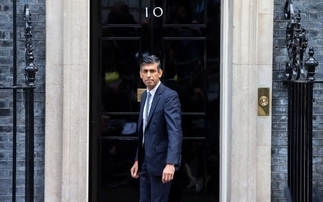F-Secure accuses the Kremlin of being behind well-resourced group that targeted governments worldwide
A well-resourced Russian hacking group called "Dukes" has spent nearly a decade conducting cyber-espionage attacks against Western governments on behalf of the Kremlin, Finnish security company F-S...
To continue reading this article...
Join Computing
- Unlimited access to real-time news, analysis and opinion from the technology industry
- Receive important and breaking news in our daily newsletter
- Be the first to hear about our events and awards programmes
- Join live member only interviews with IT leaders at the ‘IT Lounge’; your chance to ask your burning tech questions and have them answered
- Access to the Computing Delta hub providing market intelligence and research
- Receive our members-only newsletter with exclusive opinion pieces from senior IT Leaders























